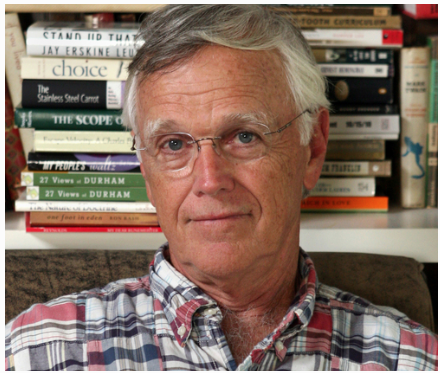
Clyde Edgerton started his career as a fiction novelist with the release of his first novel, Raney, in 19851. The book is about a Baptist woman who marries a man with different Christian beliefs and focuses on the marriage of the two main characters.2 Consequently, the novel was also one of Edgerton’s first experiences with censorship. According to George Hovis, the administration of the Baptist college Edgerton taught for at the time of the novel’s publication disliked the way the novel portrayed Baptist traditions and “withheld Edgerton’s teaching contract for the following year.”3
Eventually, Edgerton was offered his teaching contract, but the offer excluded a raise that other members of the faculty had been given that year, and when the author tried to address concerns with the administration, he was unable to win his request for an “impartial hearing.”4 Edgerton eventually accepted a position at another university when attention to the issue waned.5
Edgerton continued to write novels after Raney, and many of his novels center around life in the south, especially the Appalachian south. The southern influence and general themes in his novel’s can be attributed to Edgerton’s many of Edgerton’s own experiences, including his childhood growing up in small, North Carolina town, his upbringing in a southern Baptist family, his love of music, or service in the Vietnam War.6
Many of these themes are especially apparent in The Floatplane Notebooks, Edgerton’s third published book7 and the namesake of this project site. To read more about The Floatplane Notebooks, visit the The Floatplane Notebooks heading of the main menu.
Edgerton has continued to publish novels, including Killer Diller, Lunch at Piccadilly, and The Night Train, and he currently serves as a creative writing professor at UNC-Wilmington.9
Figure 2: Edgerton’s “The Night Train” (Vaughan, 2011). The Youtube video above is a video of Clyde Edgerton playing music with his daughter at UNC-Wilmington’s Writers Week in 2011.
Citations
- “Raney by Clyde Edgerton.” 02 January 1985. Goodreads. Accessed April 8, 2019. https://www.goodreads.com/book/show/2337794.Raney
- https://www.regulatorbookshop.com/book/9781611178234
- Hovis, G. The Raney Controversy: Clyde Edgerton’s Fight for Creative Freedom. 2001. Southern Cultures 7(2): 60-83. The University of North Carolina Press. Accessed April 8, 2019. Project MUSE database.
- (Hovis, 2001)
- (Hovis, 2001)
- Dean, Daren. A Conversation with Clyde Edgerton. n.d. The Image. Accessed April 25, 2019. https://imagejournal.org/article/conversation-clyde-Edgerton/
- “The Floatplane Notebooks by Clyde Edgerton.” 21 September 2004. Goodreads. Accessed April 8, 2019. https://www.goodreads.com/book/show/262391.The_Floatplane_Notebooks
- Edgerton, C. The Floatplane Notebooks. 2017. Southern Revivals Edition. Columbia, SC: University of South Carolina Press.
- “About Clyde.” n.d. Clyde Edgerton. Accessed April 8, 2019. http://clydeedgerton.com/about
Photo and Video Credits
Figure 1: Ewen, I., & Frame, L. Photograph of Clyde Edgerton. n.d. Clyde Edgerton Archives. Accessed April 8, 2019. Licensed under a Creative Commons Attribution-Noncommercial-NoDerivatives 4.0 International License. https://handmadenc.com/tag/clyde-Edgerton/
Figure 2: Vaughan, C. Edgerton’s “The Night Train”. 06 December 2011. Youtube. Accessed April 25, 2019. https://www.youtube.com/watch?v=pq0UQqEYp-4
No Comments Yet